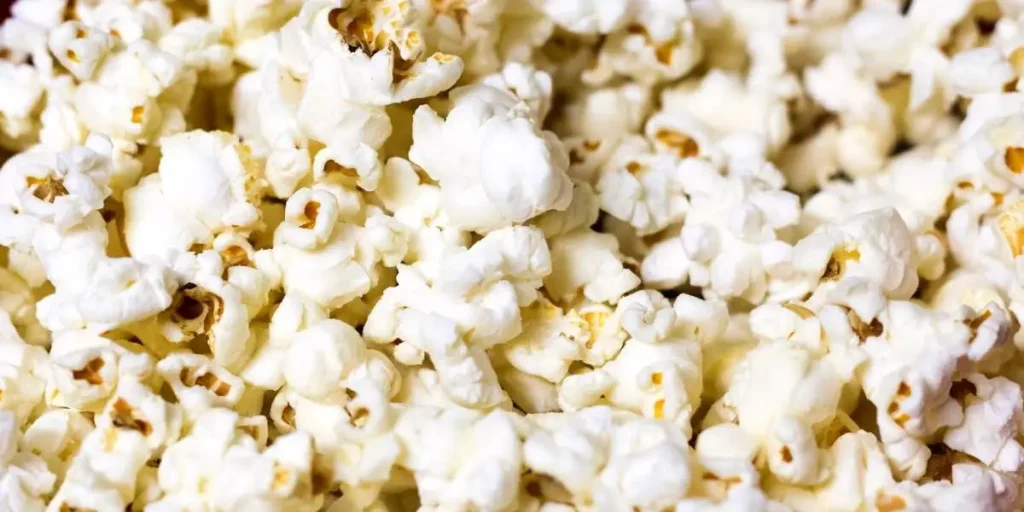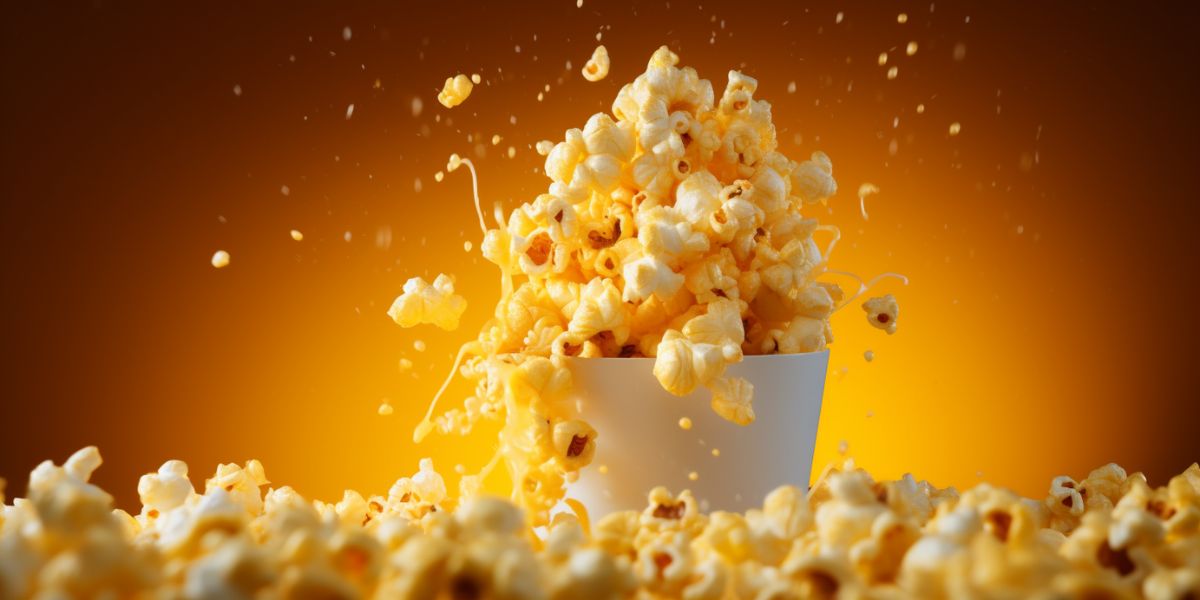Yes, popcorn can make you fat! However, when it comes to healthy versus unhealthy snacks, popcorn can sit on either side of the fence.
If you’ve ever wondered, does popcorn make you fat, the answer depends on what type of popcorn it is, how you cook it, and most importantly, what you put on it after it’s popped.
If you go to the movie theater and order a large buttered popcorn, you could easily consume up to 1,200 calories in one sitting, equivalent to three meals for some people. The thing is, on its own, popcorn has a lot of nutritional value. It’s usually the things people add to it that push up the calorie intake.
The number of calories in popcorn can vary considerably between the different types and brands of popcorn, so if you’re looking to limit or reduce your calorie intake, check before you start eating.
What Is Popcorn?
Popcorn is a whole grain, which means it can actually boost heart health. As far as its nutritional benefits go, here are just a few of them:
Unfortunately, most of the things people put on their popcorn, including oil and melted butter, have little nutritional value. Microwave popcorn often has additives that are unnecessary and not particularly healthy, either.
Pre-made popcorn usually has a high level of sugar or salt, the latter of which can cause high blood pressure or other health problems. In other words, popcorn alone can be pretty healthy, but what you add to it can make it less so.
What Are the Benefits of Eating Popcorn?

Depending on how you prepare popcorn, it can be a healthy snack, offering numerous benefits:
So, by reducing the toppings, popcorn is not going to make you fat, and can help keep your calories down – if that’s your aim.
In particular, if you steer clear of microwave and heavily buttered popcorn and instead buy yourself an air popcorn popper. You can cook your popcorn your way and choose if you wish to add anything calorie-heavy to it.
You might be interested in our article about air-popped popcorn to get some tips for making it.
If you are going to add something for some extra flavor, try adding a little olive oil and some sea salt.
Some Comparisons
In case you’re wondering about the real differences when you add those tasty ingredients to popcorn, take a look at these numbers:

FAQs
Does eating popcorn make you gain weight?
Popcorn itself is a relatively low-calorie snack, but it’s important to consider portion sizes and preparation methods. Air-popped popcorn without added butter or excessive salt can be a healthy choice. However, consuming large quantities or popcorn coated in butter, oils, or sugary seasonings can contribute to weight gain.
Is popcorn a healthy snack option for weight loss?
When consumed in moderation and prepared in a healthy way, popcorn can be a good snack for weight loss. It is low in calories, high in fiber, and can help you feel satisfied. Opt for air-popped or light microwave popcorn without excessive butter or oil to keep it a healthy choice.
Can eating popcorn at night lead to weight gain?
Eating popcorn at night, just like any other food, can contribute to weight gain if it exceeds your daily calorie needs. However, if you stay within your calorie limits and choose a healthier popcorn option, it can be a satisfying and relatively low-calorie snack even before bedtime.
Are microwave popcorn bags a healthy option?
Microwave popcorn bags can vary in their nutritional value. Some brands offer healthier options with fewer calories and minimal additives. However, others may contain artificial flavorings, high sodium content, or unhealthy trans fats. It’s important to read labels and choose brands that prioritize healthier ingredients.
Can popcorn be part of a balanced diet without causing weight gain?
Absolutely! Popcorn can be a part of a balanced diet if consumed in moderation and prepared in a healthy manner. Choose air-popped or light microwave popcorn and avoid excessive toppings. Pair it with other nutrient-rich foods like fruits, vegetables, and lean proteins to maintain a balanced diet and control calorie intake.
Remember, individual responses to food can vary, and it’s always best to consult with a healthcare professional or registered dietitian for personalized advice based on your specific health goals and dietary needs.
Final thoughts 💭
The bottom line is that popcorn alone does not make you fat. If you eat popcorn without salt, butter, or anything sweet in it, it is a very low-calorie snack – assuming reasonable amounts, of course.
What adds all the excess calories are adding too much oil or sugar to it, and these additions are really popular because they make it taste great.
If you’re interested in healthy ways to prepare popcorn, check out our buyer’s guide on air-popped popcorn makers.
Either way, what you want to add to your popcorn is up to you. At least, having read this article, you’ll understand the effect on your calorie intake that additional flavors and toppings have on your popcorn snack.
Eating your popcorn plain or adding less of the tasty calorific ingredients can keep the calories down and still make a delicious snack. Get popping!






Leave a Reply